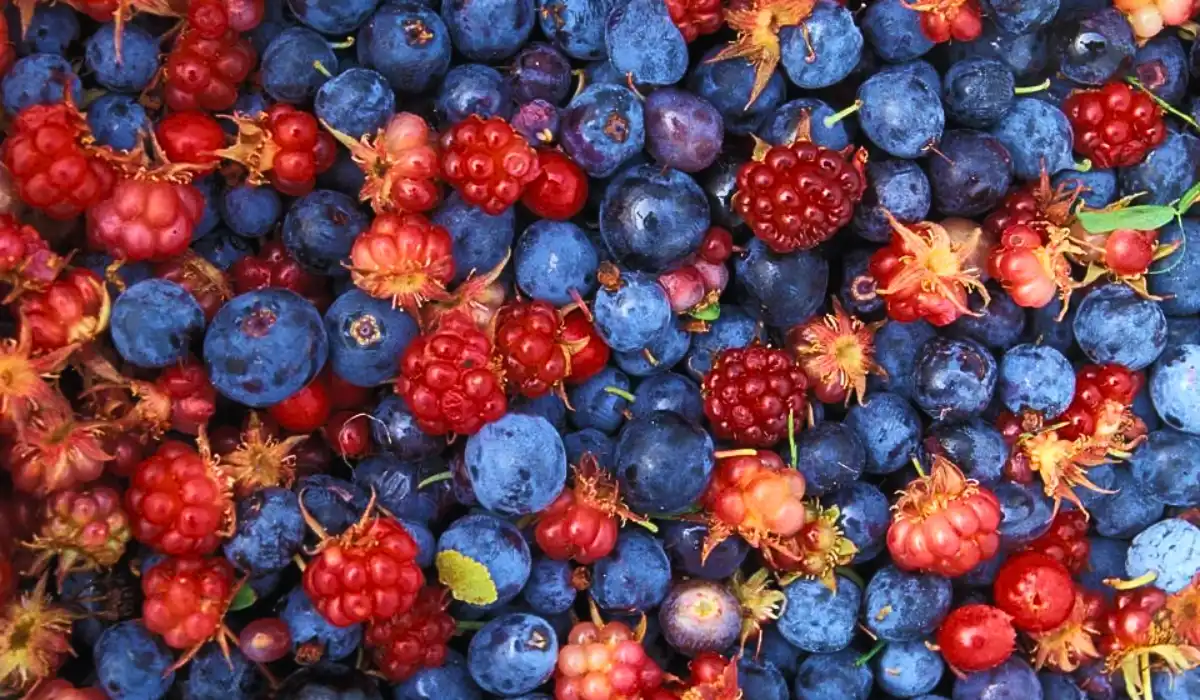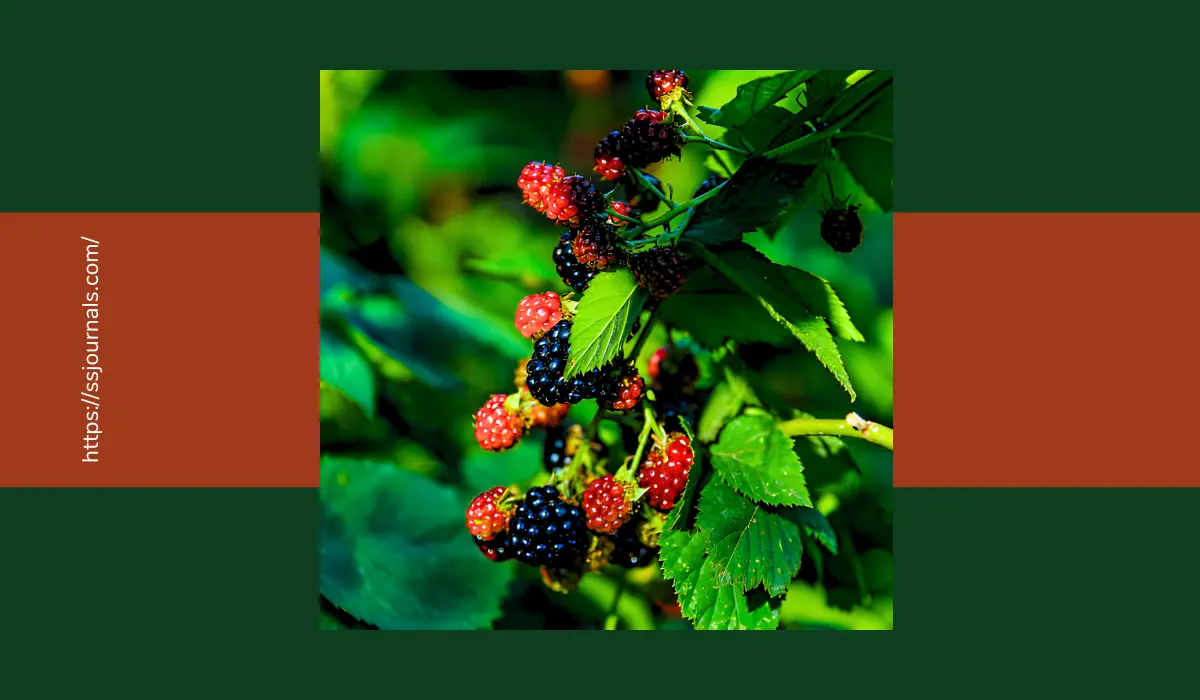Wild berries like raspberries, blackberries, and other edible wild berries have long been hailed as nutritious additions to a balanced diet. With appetizing colors and sweet flavors, wild berries contain a plethora of health benefits. It makes them a wise choice for those seeking better health.
Wild berries like raspberries blackberries etc. are loaded with essential vitamins and minerals. A single serving delivers a healthy dose of Vitamin C, manganese, and copper. The fiber and antioxidant content in the wild berry is also effective in boosting people’s immunity and fighting inflammation.
Turning attention to food like the wild berry found in nature, are rising to the top as nutritious options that deliver tangible health benefits. With obesity and related diseases on the rise, the nutrients in wild berries like raspberries blackberries etc. make them a smart diet choice.
Wild Berries Enhance General Health
All types of berries are hailed as superfoods. But wild berries like raspberries, blackberries, and other edible wild berries contain especially high levels of essential vitamins, minerals, and antioxidants.

One cup of raw Raspberries contains
- Manganese: 60% Daily Value
- Vitamin C: 54% Daily Value
- Copper: 12% DV
- Vitamin K: 12% DV
- Folate: 9% DV
- Magnesium: 8% DV
- Potassium: 8% DV
- Fiber: 8 grams
One cup of raw Blackberries contains
- Manganese: 65% DV
- Vitamin C: 50% DV
- Vitamin K: 28% DV
- Copper: 12% DV
- Folate: 9% DV
- Magnesium: 7% DV
- Potassium 6% DV
- Fiber 8 grams
With hearty doses of vitamins C, K, and manganese along with copper and fiber, its clear wild berries like raspberries blackberries, etc. outpace other fruits. In fact, calorie for calorie, wild berries deliver more nutrients than cultivated berries.
The fiber keeps digestion regular, manganese boosts metabolism, Vitamin C enhances immunity and copper increases red blood cell production. These broad health benefits make wild berries like raspberries, blackberries, and other edible wild berries an excellent addition to one’s diet.
Targeted Health Benefits
In addition to generally promoting health, key compounds in wild berries like raspberries blackberries, etc. provide targeted wellness benefits. Science continues to reveal ways these bite-sized fruits tackle specific health issues.
The anthocyanins that give a wild berry its rich color protect cardiovascular health. These antioxidants reduce inflammation, relax blood vessels, decrease clotting, and stabilize LDL cholesterol levels in the bloodstream. These vascular benefits significantly lower the risk of high blood pressure, hardened arteries, stroke, and heart attack.
Further wild blackberries and raspberries contain ellagic acid. This carotenoid compound has anti-cancer properties. Specifically, ellagic acid promotes apoptosis – natural cell death – in cancerous cells without damaging healthy cells. It also hinders tumor growth.
These are just two of the many health issues wild berries like raspberries and blackberries may mitigate. The high level of antioxidants helps prevent oxidative stress linked to numerous chronic diseases. The nutrients also guard cognitive function, help regulate blood sugar levels, reduce joint pain, and even alleviate wrinkles!
The science is clear that wild berries provide both preventative and therapeutic health benefits.
Conclusion
In today’s world of chronic illness and widespread nutrition deficits, finding foods that deliver tangible health gains is paramount. As a product of Mother Nature, wild berries like blackberries, raspberries, and other edible wild berries serve up exactly what bodies need thanks to their stand-out nutrition profiles.
With hefty doses of manganese, Vitamins C and K, copper, magnesium, and fiber, wild berries outpace cultivated berries and other fruits in nutrient density. These compounds enhance immunity, metabolism, digestion, and cellular function which form a foundation of whole-body wellness.
Additionally, targeted compounds in wild berries like raspberries and blackberries make them medicinal. Anthocyanins boost cardiovascular health. Ellagic acid fights cancer cell formation without damaging healthy cells. Antioxidants lower oxidative stress connected to numerous chronic diseases. The list goes on.
In short, regularly eating wild blackberries, raspberries, and other foraged berries makes prescribing better health as easy as taking a walk in the woods or meadow. Their stellar nutrition and scientifically-backed therapeutic benefits make these bite-sized fruits a no-brainer for those pursuing better health and protection against disease. What better reason to get outside and gather some ripe, juicy wild berries this summer?
What types of edible wild berries grow in your region? Have you experienced any health changes from eating wild berries like blackberries and raspberries?
FAQs
No definitive winner exists in the wild berry nutrient race. Blackberries, raspberries, blueberries, strawberries, and others contain their own powerful blend of vitamins, minerals, and antioxidants. To max out nutritional gains, enjoy a mix of wild berries like raspberries and blackberries.
The nutrients in wild blackberries, raspberries, and other wild berries degrade when heated. For peak nutrition and flavor, gently rinse wild berries and consume them raw. Quickly freezing also preserves wild berry nutrition.
It’s perfectly fine to forage for wild blackberries and raspberries to eat on the spot. Simply rinse off visible dirt or insects. Note raw wild berries may irritate those with oral allergies.
Wild blackberries and raspberries deliver more intense, complex flavors than cultivated grocery varieties. The sweetness and acidity vary depending on the exact species and ripeness. All wild berries gift the tastebuds with the nostalgic essence of summer.
Yes, wild blackberries and raspberries are safe for dogs to eat in moderation. Avoid wild berries growing low to the ground which dogs may use as a bathroom. Always introduce new berries slowly to check for allergies.

